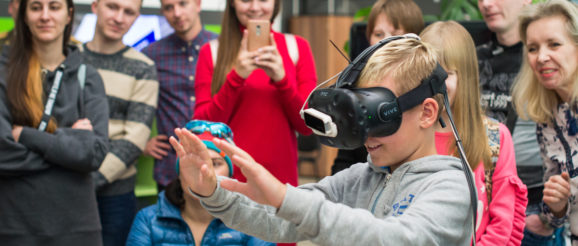Belarus Jumps 14 Places, Skyrockets In Global Innovation Index 2019

Belarus ranked 72nd in the Global Innovation Index 2019 by the World Intellectual Property Organization, WIPO. This is a strong improvement compared to the previous year when it held the 86th position.
Belarus jumped impressive 14 places to be named the 72nd most innovative country.
The Global Innovation Index 2019 released on Wednesday says that despite signs of slowing economic growth, innovation continues to blossom.
Top and bottom
Switzerland was named the most innovative country in the world, a position it has held since 2011, followed by Sweden, the U.S., the Netherlands, and the U.K., Finland, Denmark, Singapore.
This year also saw Israel entering the top 10 for the first time. Regional leaders include India, South Africa, Chile, Israel and Singapore, with China, Viet Nam and Rwanda top their income groups.
According to the report, there is a positive correlation between an economy’s level of development and innovation performance. It means wealthier economies tend to perform better in innovation.
Nigeria, Togo and Yemen, unfortunately, are not among them, they have the lowest GII score, they rank 127, 128 and 129 respectively.
What about Belarus?
In the report, the UN’s intellectual property agency says Belarus “performed in line with expectations for its level of development”.
It is 83rd in institutions innovations, 56th in business sophistication, 39th in human capital and research, 51st in knowledge and tech outputs, 48th in infrastructure, 126th in creative outputs and 56th in market sophistication.
The country ranked 50 for economic innovation in the upper-middle-income economies bracket. More Belarus-related findings can be found here.
Key findings
The global landscape of science, innovation, and technology has undergone important shifts over the last decades. Middle-income economies, especially in Asia, are increasingly contributing to global research and development and international patenting.
Public R&D expenditures – particularly in some high-income economies – are growing slowly or not at all. This raises concerns given the public sector’s central role in funding basic R&D.
Global Innovation Index 2019: India 🇮🇳 makes major gains. Switzerland 🇨🇭, Sweden 🇸🇪, U.S. 🇺🇸, Netherlands 🇳🇱, U.K. 🇬🇧 are the world’s innovation leaders: https://t.co/GEABpH3RA3. #GII2019 pic.twitter.com/6UzeL1V99w
— World Intellectual Property Organization (WIPO) (@WIPO) July 24, 2019
Increased protectionism poses risks. If left uncontained, it will lead to a slowdown of growth in innovation productivity and diffusion across the globe.
Innovation inputs and outputs are still concentrated in very few economies. Divides also persist in how effectively economies obtain return on their innovation investments. Some economies achieve more with less;
Most top science and technology clusters are in the US, China, and Germany, while Brazil, India, Iran, the Russian Federation, and Turkey also feature in the top 100 list.
More on the topic:
The top five clusters: Tokyo-Yokohama (Japan); Shenzhen-Hong Kong, China (China); Seoul (Republic of Korea); Beijing (China); San Jose-San Francisco (US).
What’s the GII?
The Global Innovation Index (GII) 2019 ranks and breaks down the innovation performance of 129 countries and economies around the world on the basis of 80 detailed metrics.
It has been published for the last 12 years to help policymakers better understand innovation activity and promote dialogue between the state and private sectors.
